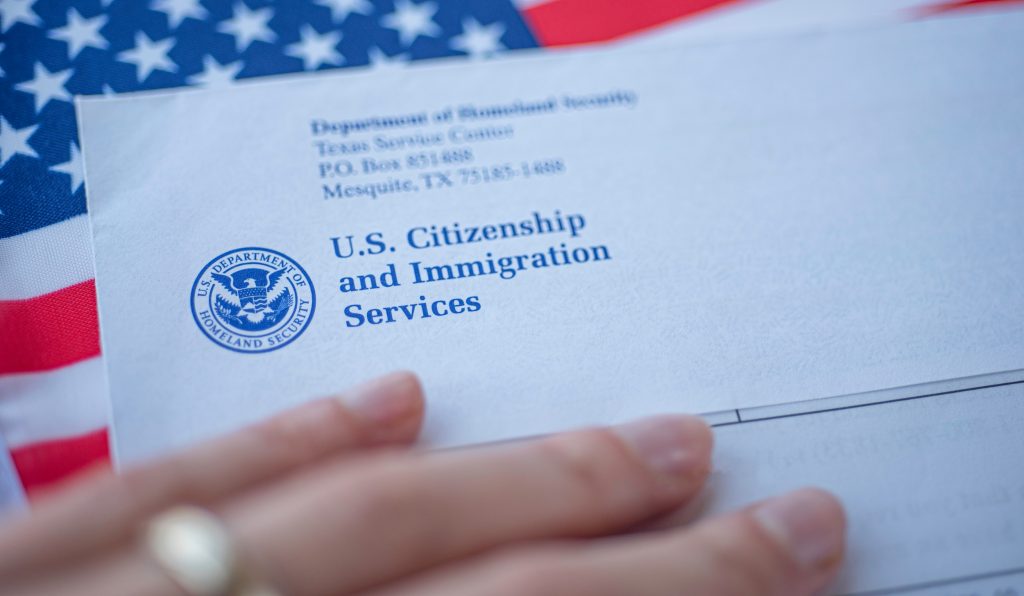USCIS Proposes New H-1B Rules: Implications for International Nurse Hiring

VisaMadeEZ, a leading immigration law firm specializing in assisting healthcare organizations hire international nurses, aims to shed light on the proposed changes to the H-1B rules put forth by the United States Citizenship and Immigration Services (USCIS). These potential modifications may significantly impact healthcare institutions’ ability to recruit talented nurses from across the globe. As such, healthcare organizations must stay informed about these changes to ensure the smooth flow of international nurse recruitment.
The USCIS recently released new H-1B rules aimed at revamping the system to protect American jobs and prioritize candidates with advanced skills. The proposed regulations signal a shift in the H-1B program, which allows U.S. employers to hire foreign workers in specialty occupations temporarily. Understanding these changes helps organizations navigate the evolving immigration landscape and remain competitive in recruiting international nurses.
Impact on Healthcare Organizations:
As a trusted immigration law firm serving healthcare organizations, VisaMadeEZ recognizes the potential implications of these proposed H-1B rules. Key areas of impact include:
- Prevailing Wage Determination: The USCIS seeks to raise minimum wage requirements for H-1B workers, ensuring equitable pay and discouraging undercutting of wages. Healthcare institutions must adapt their hiring budget accordingly to meet the new wage requirements when recruiting international nursing professionals.
- Priority System: The proposed rule introduces a priority system that favors visa applicants with advanced educational degrees from U.S. institutions. Since international nurses often join healthcare facilities after completing an academic program in their home countries, the allocation of visa slots through this new priority system must be closely monitored.
- H-1B Visa Validity Duration: USCIS aims to limit the validity period of H-1B visas to ensure minimal disruption in the labor market. Healthcare organizations must factor in potential shorter visa durations when planning international nurse recruitment and retention strategies.
- Additional Administrative Requirements: The proposed regulations introduce additional documentation and procedural requirements, including formalizing online pre-registration for the H-1B lottery system. VisaMadeEZ will work closely with healthcare organizations to ensure compliance with the new administrative processes and alleviate any potential challenges during the application and recruitment phases.
Clarifications and Codifications
Deference to Previous USCIS Decisions
The proposed rule codifies that USCIS officers should defer to prior approvals when no underlying facts have changed at time of a new filing.
Amended H-1B Petitions
Currently, practitioners must judge when to file amended petitions based on archived USCIS policy guidance and DOL guidance and regulation. The proposed new rule will clarify that an amended or new petition must be filed pursuant to any change in work location that requires a new LCA.
Relaxed Requirements for CAP-exemptions
The new rules would require that nonprofit and governmental research organizations merely conduct research as a fundamental activity, which is a looser interpretation that the previous requirement that these entities be primarily engaged in research.
Additionally, the new rules would allow beneficiaries to qualify for H–1B cap exemption when they are not directly employed by a qualifying organization, but still provide essential work, even if their duties do not necessarily directly further the organization’s essential purpose.
Extension of the CAP-gap period
Currently, the CAP-gap is an automatic extension of status for F-1 students whose F-1 validity period is set to expire before H-1B petitions go into effect on October 1. This poses a particular problem for H-1B CAP beneficiaries who are chosen in second or third rounds of the H-1B CAP, who cannot begin work on October 1. The new rules would extend the CAP-gap period, which would extend both F-1 students’ statuses and work authorization, through April 1 of the year following H-1B petition submission. Such an extension would afford CAP-gap protection for F-1 students whose H-1B petitions are approved with start dates past October 1.
CAP Lottery Selection
Under the new rule, related entities would be prohibited from submitting multiple registrations for the same beneficiary.
The rule would also select individual H-1B lottery beneficiaries, rather than registrations. Currently, a beneficiary can conceivably be selected multiple times if he or she has multiple registrations submitted on his or her behalf, resulting in low selection rates for most H-1B CAP lottery beneficiaries. The new rule would allow each beneficiary to be selected only once; if a beneficiary holds multiple registrations, each registering company would be notified of selection and provided an opportunity to file a legitimate H-1B petition on the beneficiary’s behalf.
Our Commitment to Healthcare Organizations:
As an immigration law firm dedicated to aiding healthcare organizations in their international nurse hiring endeavors, VisaMadeEZ is well-equipped to guide clients through these potential changes. We understand the importance of attracting and retaining highly skilled nursing professionals from abroad and will help healthcare institutions navigate the evolving H-1B landscape with expertise and precision.
